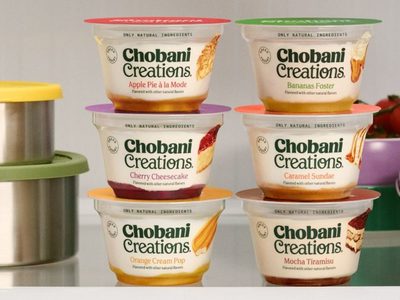“The positive E.F.S.A. opinions provide confirmation of the strength of the evidence Beneo ingredients have to support structure/function claims,” said Anke Sentko, vice-president of regulatory affairs and nutrition communication at Beneo. “Might this influence the U.S. market? Sure it will. It is the food manufacturer who has the final responsibility on what is marketed, including the structure/function claim used. A positive E.F.S.A. opinion is a strong and convincing argument, also for the U.S. manufacturer.”
In the United States, the F.D.A. in the March 3, 2014, issue of the Federal Register proposed new rules for the Nutrition Facts Panel. Within the proposal, the F.D.A. proposed a definition for dietary fiber, such as demonstrating physiological effects that are beneficial to human health.
“Cargill is hopeful that the F.D.A. will align with the current science on fiber and work to create global harmony in regards to this important nutrient,” said Julie Paul, a senior regulatory scientist for Minneapolis-based Cargill.
The company said its Oliggo-Fiber chicory root inulin offers such physiological effects as digestive health, bone health and weight management.
Beneo-Orafti SA, Sensus BV and Cosucra-Groupe Warcoing SA combined to send an application to the E.F.S.A, based in Parma, Italy. The application asked the E.F.S.A. to deliver an opinion on the scientific substantiation of a health claim related to fructo-oligosaccharides (FOS) from inulin and a reduction of post-prandial glycemic responses.
“The panel concludes that a cause-and-effect relationship has been established between the consumption of foods/beverages containing non-digestible carbohydrates instead of sugar and a reduction of post-prandial glycemic responses as compared to sugar-containing foods/beverages,” the E.F.S.A. panel said last year.
Lowering the postprandial glycemic response has been shown to benefit people with impaired glucose tolerance or type 2 diabetes, according to Sensus. Frutafit inulin and Frutalose oligofructose from Sensus are not broken down or digested into simple sugars by the upper human digestive tract and thus will not affect blood glucose levels. They may replace sugar in a range of food products.
“Recent studies have demonstrated inulin’s potential in the area of weight management,” added Scott Turowski, technical
sales manager for Sensus
America, Inc. “Research has shown that participants that consumed inulin reduced their daily caloric intake by as much as 11%.”
Beneo offers Orafti varieties of inulin and oligofructose. The company sent an application to the E.F.S.A. asking the E.F.S.A. to deliver an opinion on the scientific substantiation of a health claim related to native chicory inulin and maintenance of normal defecation by increasing stool frequency. Six studies that involved 86 people consistently showed eating at least 12 grams of native chicory inulin a day increased stool frequency.
“The panel concludes that a cause-and-effect relationship has been established between the consumption of ‘native chicory inulin’ and maintenance of normal defecation by increasing stool frequency,” the E.F.S.A. panel said earlier this year.
The F.D.A. may approve structure/function claims that describe the role of a nutrient or dietary ingredient intended to affect the normal structure or function of the human body. For one example, “calcium builds strong bones” is a structure/function claim.
“They need to be based on sound science, need to be truthful and not misleading, but a formal pre-market approval, as is now applied in Europe, is not required in the United States,” Ms. Sentko said. “However, claims on chicory root fibers and their contribution to digestive health have been in the U.S. market for many years. Beneo’s ingredient-related claims are based on sound and robust science and are complying with U.S. and E.U. requirements.”
Inulin suppliers appear confident their ingredients will meet the upcoming F.D.A. fiber definition.
“Beneo welcomes the fact that F.D.A. requests the fiber proof,” Ms. Sentko said. “Beneo is very confident that our chicory fiber (inulin/oligofructose) is indeed correctly classified as fiber. They are classified as fibers all over the world, including the United States.”



